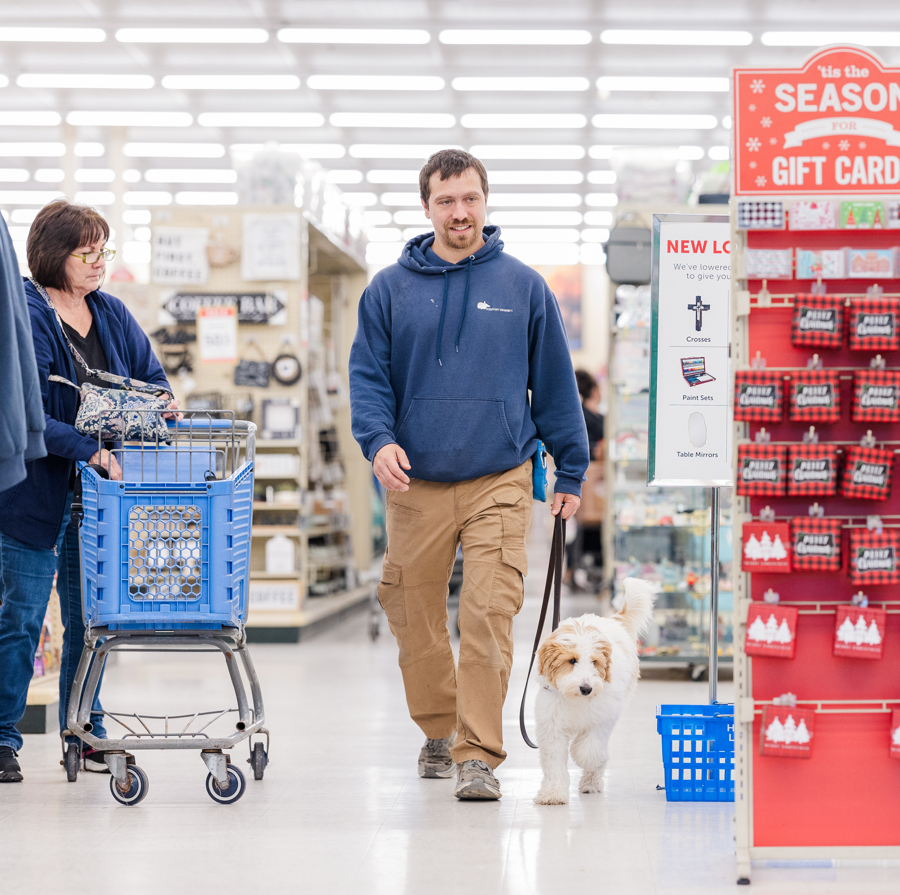Behavioral issues in dogs can be a real challenge for pet owners. Problems like excessive barking, aggression, and separation anxiety make daily life difficult for both you and your pet. Addressing these issues is crucial for a harmonious household and a happier dog.
Boarding School offers a specialized environment for tackling these behavioral challenges. Here, your dog receives focused, hands-on training tailored to their specific needs. Professional trainers understand how to work with different dog personalities and behaviors, offering solutions that might be hard to achieve at home.
This article will explore how boarding school provides effective strategies for dealing with problematic behaviors. By diving into this comprehensive training approach, you’ll see how it prepares your dog to return home more obedient, calm, and ready to fit seamlessly into your family’s routine.
Understanding Behavioral Issues in Dogs
Dogs can exhibit a range of behavioral issues that may pose challenges in daily life. These issues could stem from various factors such as lack of training, anxiety, or even past experiences. Some common behavioral problems include excessive barking, aggression, separation anxiety, and pulling on the leash. These behaviors can be bothersome and sometimes disruptive, affecting not just the dog’s life but also the owner’s peace of mind.
Understanding the root of these behaviors is the first step toward addressing them. For example, excessive barking might be the result of boredom or anxiety, while aggression could stem from fear or previous negative encounters. Identifying triggers and patterns helps in developing an effective plan to mitigate these issues.
Additionally, each dog is unique. Their breeds, personalities, and environments all play a significant role in their behavior. Understanding these aspects allows trainers and owners to tailor approaches that work best for each individual dog. Addressing these behaviors early is crucial to prevent them from becoming ingrained habits. Whether it’s through basic obedience training or focused behavioral modification strategies, understanding your dog’s needs is key to ensuring a happy and harmonious home environment.
Benefits of Boarding School for Behavioral Training
Boarding schools for dogs offer a structured and intensive approach to behavioral training. This option is particularly beneficial for addressing complex behavioral challenges that require more focused attention. Here are some benefits of opting for a boarding school:
- Consistent Training Environment: In a boarding school setting, dogs are immersed in a consistent and controlled environment that helps reinforce positive behaviors. Regular routines and continuous practice lead to faster learning and ingrained habits.
- Professional Guidance: At boarding schools, experienced trainers are available to work closely with your dog. These professionals have the skills to address specific behavioral issues effectively.
- Away from Distractions: Boarding schools provide an environment apart from the usual home distractions. This helps dogs concentrate on learning without external disruptions, leading to better training outcomes.
- Comprehensive Behavior Modification: Intensive programs can be tailored to target a range of behaviors, from basic obediency to complex behavioral corrections. This ensures that your dog receives the personalized attention they need.
- Socialization Opportunities: Dogs at a boarding school interact with other dogs regularly, helping them improve their social skills and confidence.
By choosing a boarding school for behavioral training, you can ensure that your dog receives the necessary care and focus to overcome their challenges. This not only helps the dog become more balanced and well-behaved but also strengthens the bond between you and your pet, paving the way for a more enjoyable companionship.
Tailored Training Approaches for Different Behaviors
At Dogology University, customizing training approaches is key to effectively dealing with diverse behavioral issues. Each dog has unique needs that require specific attention to foster the desired behavioral change. Here are some tailored strategies used to address various behaviors:
- Anxiety and Fear Responses: For dogs prone to anxiety, gradual exposure to their triggers within a controlled environment helps them build confidence. Calm activities and consistent reassurance are essential in creating a sense of security.
- Aggression Management: Aggression can stem from fear, territorial instincts, or frustration. Training involves understanding the root causes and teaching dogs alternative, calm behaviors to replace aggression. Positive reinforcement plays a major role here, rewarding non-aggressive responses.
- Hyperactivity: Energetic dogs benefit from structured exercises and mental stimulation to channel their energy into positive behaviors. Incorporating puzzle games and regular physical activities helps reduce pent-up energy and promote calmness.
- Leash Training: Dogs with leash issues learn through repetitive conditioning in diverse environments. This training emphasizes walking calmly beside their owner, focusing on recalling basic commands like “heel” and “stay.”
- Excessive Barking: Addressing barking involves identifying triggers, such as boredom or external noises, and creating a quieter environment. Training focuses on using “quiet” commands, reinforced with rewards for calmness.
The effectiveness of these training programs relies heavily on consistency and patience. Tailored approaches ensure each dog gains the skills necessary to behave appropriately, enhancing the quality of life for both dogs and their owners.
Ensuring a Smooth Transition Back Home
Once your dog completes their boarding school training, a smooth transition back home is crucial to maintaining their newly acquired behaviors. Here are several steps to make this transition as seamless as possible:
- Routine Consistency: Stick to the routines established during boarding school. Consistent feeding, exercising, and training schedules help dogs settle back into home life more easily.
- Reinforcement of Training: Keep practicing the commands and behaviors your dog learned. Regular reinforcement helps solidify these attitudes, ensuring they continue outside the training facility.
- Family Involvement: Engage all family members in the dog’s training. Consistent communication and expectations from everyone help the dog understand their role and behaviors within the family dynamic.
- Environment Management: Eliminate potential triggers at home that might revert old behaviors. Creating a calm and familiar environment reassures your dog, making them feel safe and secure.
- Continuous Socialization: Maintain your dog’s social skills by organizing play dates with other dogs or visiting parks. Regular socialization helps prevent regression into undesirable behaviors.
Taking these steps ensures your dog retains the positive behaviors developed during their time at Dogology University and helps foster a harmonious and balanced home environment.
Conclusion
Behavioral challenges in dogs can be effectively addressed through specialized training programs like those offered at Dogology University. By understanding and tackling these issues with tailored approaches, we ensure that dogs learn to navigate their worlds with confidence and ease. Whether through structured boarding school programs or real-world training techniques, these efforts create more obedient and well-adjusted companions.
Dogology University is committed to transforming your dog’s behavior and setting it up for success in any environment. Contact us today to explore our unique dog training program options and start building a happier, more harmonious relationship with your dog.







+ show Comments
- Hide Comments
add a comment